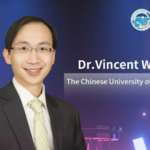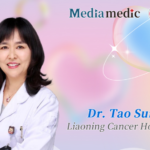
Editor's Note: At the full-session management segment of the 7th Oncology Precision Diagnosis and Treatment Conference and the 10th Breast Cancer Individualized Treatment Conference (2024 COMB), Dr. Jiani Wang from the Cancer Hospital , Chinese Academy of Medical Sciences and Peking Union Medical College, along with three other breast cancer experts, engaged in a deep discussion on the significance of the ADAPT study for HER2+ breast cancer treatment and how to manage patients throughout the treatment process. Following the conference, Oncology Frontier invited Dr. Jiani Wang to provide an in-depth analysis of the ADAPT study. She also shared the latest achievements of her team in the field of anti-HER2 treatment and her expectations for the treatment of HER2-positive breast cancer patients.Oncology Frontier: Could you briefly introduce the ADAPT study that you discussed during the conference and explain its significance for HER2+ patients?
Dr. Jiani Wang: At this conference, we invited several international experts, including Professor Nadia Harbeck from the West German Study Group (WSG), who presented on “Precision Treatment of HER2-Positive Early Breast Cancer Starting with the ADAPT Study.” The ADAPT series is a multi-cohort umbrella design study aimed at precisely identifying early breast cancer patients and applying de-escalation therapy. The ADAPT study uses a neoadjuvant treatment platform, focusing on the HER2 and HR targets, with the goal of exploring subgroups that could benefit from precise de-escalation. Indeed, this study has provided us with many valuable insights. For HER2+HR- early breast cancer patients, those who achieved pCR with P+T±paclitaxel de-escalation neoadjuvant therapy have high survival rates, and their prognosis remains stable. For patients whose recurrence risk is not particularly high, further exemption from adjuvant chemotherapy after surgery does not affect the iDFS of pCR patients, making it an effective preoperative neoadjuvant de-escalation strategy. It is crucial for us to identify patients’ recurrence risks as early as possible and apply de-escalation strategies to reduce the adverse effects of chemotherapy. This is also the direction for future exploration in precision and individualized treatment.
Oncology Frontier: HER2+ breast cancer subtypes exhibit significant biological heterogeneity. As a clinician, how do you help patients achieve precision treatment?
Dr. Jiani Wang: HER2-positive breast cancer is a key molecular subtype of breast cancer. Large molecule monoclonal antibodies, represented by trastuzumab, initiated the era of targeted therapy for HER2-positive breast cancer. With more diversified treatment options now available, including small molecule tyrosine kinase inhibitors (TKIs) and antibody-drug conjugates (ADCs), patients have a broader range of treatment choices. However, this also presents greater challenges in treatment planning. For patients with HER2-positive advanced breast cancer, it is essential to identify the population sensitive to first-line anti-HER2 treatment. For previously treated HER2-positive advanced patients, determining the next treatment step and sequencing subsequent treatments are critical considerations in clinical practice.
Currently, treatment plans are determined based on clinical and pathological features, whether anti-HER2 therapy was selected in prior treatments, and the patient’s sensitivity to treatment. With the development of liquid biopsy technologies such as ctDNA-MRD, we can more accurately identify high-recurrence-risk patients at an earlier stage. For patients who experience recurrence at different times, we can choose the most suitable treatment plans accordingly. We look forward to the integration of more translational research findings into clinical practice in the future, enabling us to offer more precise, individualized treatment to patients.
Oncology Frontier: What related research achievements has your team recently published on HER2+ breast cancer treatment? Could you share some of these results with us?
Dr. Jiani Wang: I am a physician at the Cancer Hospital, Chinese Academy of Medical Sciences, and under the leadership of Academician Xu Binghe, our team has made significant progress in the field of anti-HER2 treatment. For example, our phase III clinical study (PHILA study) on the first-line treatment of HER2-positive advanced breast cancer using trastuzumab combined with pyrotinib yielded positive results. This combination is now included in the first-line treatment regimen for HER2-positive advanced breast cancer in China. From the perspectives of accessibility, cost-effectiveness, and clinical mechanisms, the combination of large and small molecules in anti-HER2 treatment is an essential therapeutic option for Chinese patients. The PHILA study results were published in The British Medical Journal (BMJ) in 2023 and have reshaped the landscape of first-line treatment for HER2-positive advanced breast cancer. We plan to conduct more such studies in the future and hope that as more research data become available, more breast cancer patients will benefit from these advancements.
Dr. Jiani Wang
Ph.D., Associate Chief Physician Department of Internal Medicine, Cancer Hospital , Chinese Academy of Medical Sciences and Peking Union Medical College Graduate of the eight-year clinical medicine program at Peking Union Medical College Visiting Scholar, University of California, San Francisco Medical Center, Cancer Research Institute Currently working at the Department of Medical Oncology, Cancer Hospital, Chinese Academy of Medical Sciences Engaged in clinical diagnosis and treatment of breast cancer and research on individualized treatment Published 20 SCI and core journal research papers in the past 5 years, first author of 6 abstracts at well-known international oncology conferences, co-authored 4 monographs, and authored 4 expert consensus documents. Served as Sub-Investigator for over 10 international/domestic multicenter clinical trials related to new oncology drugs. Project leader for the National Natural Science Foundation of China (NSFC) Youth Fund and the Beijing Natural Science Foundation’s general projects, among others, with a total of 10 research projects. Selected for the Beijing Association for Science and Technology’s “Youth Talent Lifting Project.” Member of the Translation Team, Chinese Society of Clinical Oncology (CSCO) Member, Breast Cancer Professional Committee, Chinese Women Physicians Association Member, Breast Cancer Professional Committee, China Health Promotion Foundation Member, Breast Cancer Professional Committee, China Gerontological Society Member, Oncology Professional Committee, Chinese Research Hospital Association Member, Tumor Chemotherapy Professional Committee, China Medical Education Association Secretary-General, Special Committee on Tumor Treatment Quality Control and Improvement, Beijing Standing Committee Member, Breast Cancer Prevention and Treatment Expert Committee, Beijing Health Promotion Association Member, Oncology Cardiology Professional Committee, Beijing Oncology Society Member, Youth Committee, Beijing Breast Disease Prevention Society Member, Global Breast Cancer Discussion Group, The Lancet First Youth Editorial Board Member, Cancer Innovation Sixth Youth Editorial Board Member, Chinese Journal of Gerontology


